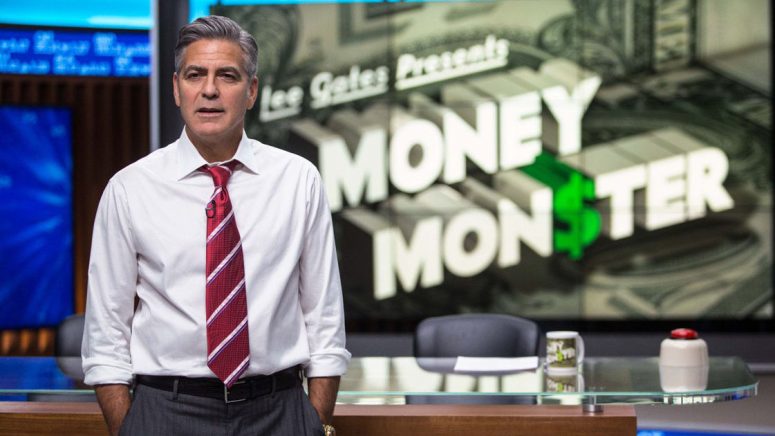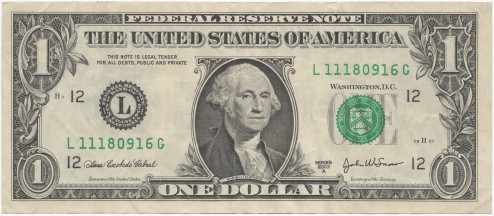
My daughter recently asked how someone gets rich. Before I share my answer, it’s important to distinguish rich from wealthy (and upper middle class).
Rich is having a high income, typically north of $300,000 a year in America, regardless of debt. Wealthy is possessing a large amount of money, property, assets, savings, and/or investments relative to debt (aka “high net worth”).
For reference, the lower economic class makes less than $50,000 a year; middle class between $50-150k, and upper middle class between $150-300k. Super rich (just 1% of Americans) make half a million a year or more.
Depending on how fast you spend money, it’s possible to be “rich but broke.” It’s also possible to become wealthy over time without ever being technically rich in any given year. And depending on your lifestyle, where you live, and your family status, it’s possible to live rich and/or approach wealth without hitting those exact numbers.
That said, there are five proven ways to make a lot of money. They are as follows: Continue reading…

Courtesy Shutterstock
Short answer: Figure out what’s abnormally expensive, and then don’t buy that thing.
Long answer: Think creatively about how to still satisfy your wants and or needs in a different way. After the price of brisket recently skyrocketed, for instance, I slow-cooked a roast instead and it turned out pretty good! I’d say maybe 80% like real brisket and would eat it again. Plus, it was a lot more palatable to pay $15 for a hunk of BBQ instead of $55.
My wife and I do the same with travel. We try to book during low season when prices are less. This requires a flexible schedule or some additional sacrifices in time, but it’s a wonderful way to save on airfare, hotels, and tours.
In short, you gotta follow the “SUCC” framework if you wanna beat inflation:
- Substitute items or experiences (like roast for brisket or off-peak travel)
- Use existing resources in new ways (like credit card cash back points for new home decor)
- Conserve the little things that add up over time (cut out subscriptions that no longer delight you; these can add up quick and pay for things that still do)
- Coop with others around you to pool and or share resources (Not just Airbnb and Uber, but ask friends and neighbors if you can exchange or borrow things without imposing on their kindness)
Lastly, if you really love something and can still afford it, don’t overthink it. Just buy it.

When it comes to extending your buying power, being thrifty and frugal is an important half of the money equation (i.e. the other is income). But as with all things in life, too much of anything can lead to harm. Here are 10 ways you might be unknowingly sabotaging your savings.
- Buying things you don’t need because they’re on sale (i.e. “half off” is still hits your wallet by half)
- Avoiding preventative health visits (this can be super costly)
- Avoiding preventative car maintenance (this can too)
- Buying cheap, non nutritious food and paying for it with your health (you don’t want to pay with that type of currency)
- Buying wholesale or “free shipping” memberships without using them enough to justify the membership cost (do the math)
- Driving longer distances to save pennies on gas (silly)
- Believing that “doing it yourself” will always save money (it doesn’t, by my estimate, using experts half of the time can actually save you money in the long run)
- Failing to notice unit price before making a purchase (this takes five seconds but can have a big impact in the long run)
- Buying cheap products that you use often, which increases replacement costs (I’m guilty of this sometimes, so consider usage before paying for cheaper durability)
- Not buying things that bring you joy (money is a tool to get you things you want, need, and benefit from. It has no value in and off itself, so use it to invest in your daily fulfillment)
That’s just the tip of the iceberg. By all means, spend wisely, but consider the long-term costs before you do.

My friend Tommaso and I after eating fresh pasta
Since much of the world is still partially closed or weird, I’ve taken a lot of comfort over the last year in the “simple things.” By that I mean everyday common things that are perpetually satisfying.
For example, here are 10 in particular that are paramount to me: Continue reading…

According to years of behavioral research, here’s a great explanation of how buying time, buying experiences, and buying things for others can scientifically turbocharge our happiness.

Shutterstock
My wife and I were talking to our children recently about how to spend money for maximum impact, fulfillment, and happiness. After researching the issue further, this is what I came up with: Continue reading…
 I recently read a thought-provoking essay by James Pogue on the rise of long-form articles that are later optioned into feature films and narrative-driven books, sometimes to the tune of several million dollars, as was the case with Argo, a movie that was based on a previously published Wired article.
I recently read a thought-provoking essay by James Pogue on the rise of long-form articles that are later optioned into feature films and narrative-driven books, sometimes to the tune of several million dollars, as was the case with Argo, a movie that was based on a previously published Wired article.
As Pogue seemingly sees it, this new economy of article-to-film adaptations turns previously idyllic literature into modern day “trash,” which is as harsh as it is inaccurate. For example, Say Nothing, a book written by the New Yorker’s Patrick Keefe and based on his previously published articles, is hardly trash for soon becoming a TV series. In fact, the book is phenomenal and proof that great authors and their stories deserve to be told across as many mediums and adaptations as possible, in an effort to reach as many people as possible—even ones that don’t like to read books or long-form articles.
On the whole, it seems like Pogue is just bemoaning change. Continue reading…

As a long-time tech journalist, I’ve noticed an interesting trend over the years. Companies who aren’t really tech companies will call themselves that anyway.
This is because “tech” is a lot like “new,” “free,” or “sale.” These words get people’s attention. So a lot of companies say they’re “tech” for the free publicity.
One such company is WeWork, a real-estate company that leases short and long-term office space stocked with free beer, cool lighting, and a community-for-hire for remote workers like myself. Continue reading…
 I’m a firm believer that following your passion usually results in higher income. This is because doing what you love usually results in better work. And in a free market, the price goes up for better work.
I’m a firm believer that following your passion usually results in higher income. This is because doing what you love usually results in better work. And in a free market, the price goes up for better work.
This isn’t always the case. If you love liberal arts or cleaning buildings, you must understand that the market doesn’t value those things very much, so you won’t make much money. Not that you shouldn’t pursue those careers. You totally should if they make your day. But you must also temper your lifestyle expectations, especially if you’re not the entrepreneurial type.
That said, I’m also a believer in beating the system. So if you still don’t know what you want to do in life, why pay for four years of college when you can pay for two instead, still get a marketable job, and make a good wage until you finally transition to something you could do the rest of your life?
For that, a high-paying two-year associate degree might be a good fit, according to estimated salaries compiled by money.com, Reddit, and Google. They are as follows: Continue reading…

Courtesy MGM
If you’re reading this, I’m guessing you like money. What does money have to do with offline balance, though?
In my research, everything. Next to fame and sex—which by no coincidence are often facilitated by money—the latter is arguably the most sought after thing in life, particularly (but not exclusively) for male species.
For purposes of this newsletter, however, I won’t preach to you on the ill-guided focus of money or bottomless cup that is greed. Instead, I’ll let smarter people do it for me: Continue reading…

credit: blake snow
Life is hard sometimes. It’s always hard if you do any of the following with regularity: Continue reading…
 I posses five and a half of the seven denominators of American millionaires, according to The Millionaire Next Door. Assuming each of these traits are weighted equally, I have a 79% chance (78.5% to be exact) of becoming one.
I posses five and a half of the seven denominators of American millionaires, according to The Millionaire Next Door. Assuming each of these traits are weighted equally, I have a 79% chance (78.5% to be exact) of becoming one.
While the extra play money would be fun, I’m content with my thousandaire status. I have my health. I’ve got my soulmate. I found my calling.
I have five fabulous children, many uplifting friends, and a loyal dog. When kids ask me if I’m “rich,” I say yes, because I am.
Enough of the feel-good crap. A millionaire I am not. Let’s get down to numbers: Continue reading…

courtesy frank bourassa
What a story. What a character.
Wells Tower writes for GQ: “Frank paid a few visits to the U.S. Secret Service’s website, which, handily, offers an in-depth illustrated guide to serial numbers, watermarks, plate numbers, and all the other fussy obstacles to the counterfeiter’s art. ‘I thought, if I’m going to do this, I’ll go big or go home.'”
At the turn of the decade, the Canadian ended up printing more than $200 million in twenty dollar bills — an elephantine amount compared to most counterfeiters. “If he’d printed a measlier number of millions, he would have lacked a big chip with which to bargain for his liberty,” explains Tower. “He would certainly have been jailed longer. In other words, had Frank not gone big, it could have been quite a long time before he’d have been free to go home.”
Superb read. I highly recommend it.

Warner Bros. / Blake Snow
My stomach turns anytime I witness waste, lavishness, or squandering. I smile whenever I see thrift, frugality, or resourcefulness. (See also: The difference between cheap and frugal)
In fact, the latter is a life-long pursuit of mine: To be resourceful in everything I do, including my personal and business endeavorers.
Which is why I relate to Amazon’s leadership principle on frugality, explained like this Continue reading…

In an effort to reduce the spam I email to friends and family, take this:
(CNN) — From Airbnb to GasBuddy to shopkick, lots of apps and websites help consumers save money.
But how do we spend less on technology itself — that digital drug we can’t seem to get enough of? How can we save money on electronic gadgets and services … so that we can buy more gadgets?
Here are 10 ways to stretch your tech budget this year: Continue reading…
Media often paints the shuttering of retail stores in a negative light, as if said stores are not being replaced and restaffed by online stores and digital goods (which many are) or creating entirely new workforces (which many are, too).
Economic impact aside, however, the shuttering of brick and mortar stores has actually improved my family’s life. Let me count the ways:
-
I make smarter purchases now. Before the internet, I was overcharged and burned more often than I am now. Not only does the internet liberate pricing information, it makes it easier to compare and you can check product reliability and functionality before buying. Consequently, when used properly, you can save a lot of money and purchase much better products, especially with the help of consumer ratings. In that sense, I don’t miss shuttering brick and mortar stores at all.
-
Better convenient stores. If there’s one thing online stores will never fully replace, it’s convient and grocery stores. And as I’m sure you’ve noticed, you can get a whole lot more than groceries there now, thanks to the consolidating and shuttering of other retail stories. In addition to food, I bank at, buy stamps at, rent Red Box movies from, buy Christmas trees from, buy flowers from, and buy concert tickets from my nearby grocers. They’re my favorite stores behind Amazon and Walmart, and I suspect they’ll get a whole lot better as stores continue to consolidate and move online.
That said, there is a price we pay in closing so many retail stores. Our communities, social interactions, and face time will inevitably take a hit. That’s the most legitimate challenge I think we’ll face as stores continue to consolidate and evolve.
But overall, my consumer life is better thanks to online shopping. So is my posterity’s lives. And so are the remaining offline stores that have gotten stronger and better, too. So other than the above, I really don’t see any direct downsides. Do you?

I was searching for “internet authors” last week and stumbled on this man’s webpage, who dubs himself “the best-selling Internet author of all time.” I chuckled a bit upon reading his claim and seeing his photo, until I realized he knows what he’s talking about on at least one subject, How to get rich:
In the long run, it’s what you do day to day, over many years, that makes the difference. When you fall in love with what you do, and you work hard for a long time, you are offering the world your very best.
Think of the economy as a huge complex organism. If you learn to contribute in the right way, the economy will reward you. If not, you will be poor. The recipe for success and wealth is simple. Find the work that is best for you. Spend years engrossed in your work. Do a bit of long-term planning.
If you follow these guidelines, I can’t guarantee you will become a millionaire. What I do guarantee is you will live a useful, productive, happy life. And, over the years, that will be your very best chance of becoming rich.
I couldn’t have said it better myself, Harley. Although less than a third way through my planned 100 year life, I’ve found this to be the case for me. Do what you love, and monetary wealth will often find you.
At the same time, I’ll one-up what Harley said: Although millions can never be guaranteed, an enriched life can be guaranteed by following your passions. So you can get “rich” doing what you love in life, with the bonus being the best chance at finding monetary riches as well.
Either way, that’s how one gets “rich” in life.
Awkward photos with big furry cats totally optional.
I suppose it’s only logical that profiteers would move to high school basketball, having already compromised professional and collegiate hoops.
That said, the below is a must-read summary for any athletic parent, youth coach, or sports fan:
A jarring look at youth basketball: Part 1 | Part 2
Note: The above story is a review of the eye-opening Play Their Hearts Out by George Dorhrmann.
Via The Atlantic:
If The Federal Government’s household income was $55,000 per year, they’d actually be spending $96,500–$41,500 more than they made! That means they’re spending 175% of their annual income! So, in 2011 they’d add $41,500 of debt to their current credit card debt of $366,000!
Yup, it’s as bad as you thought.
Would be interesting to see what Rome’s debt-to-income ratio looked like before they fell.

Any Smooth Harold readers out there that have tried them? There rates, zero fees, and easy access sound great.
 This is an interesting survey of half a million Americans, according to Yahoo News:
This is an interesting survey of half a million Americans, according to Yahoo News:
People’s emotional well-being — happiness — increases along with their income up to about $75,000, researchers report in Tuesday’s edition of Proceedings of the National Academy of Sciences.
For folks making less than that, said Angus Deaton, an economist at the Center for Health and Wellbeing at Princeton University, “Stuff is so in your face it’s hard to be happy. It interferes with your enjoyment.”
Happiness got better as income rose but the effect leveled out at $75,000, Deaton said. “Giving people more income beyond 75K is not going to do much for their daily mood … but it is going to make them feel they have a better life.”
In a temporal sense, I believe it.

Ken Cook
Lindsey and I have a beautiful 70 foot Maple in our backyard (similar to the one pictured, only bigger). It must have well over a million leaves. One side of its thick trunk can easily hide two grown adults.
It shades much of our home. Keeps our energy costs down. And is a joy to sit under at any time of the day—photosynthesizing leaves not only shading the sun, but cooling the surrounding air.
As for the rest of the property, the Maple gets “mature” back up from 12 surrounding friends: five in the front, three alongside the driveway, and four alongside the west side of the house. Additionally, there are three more adolescence trees working their way skywards.
What’s fascinating about mature trees is that they cannot be bought. Decades of time and fertile nutrients are their only asking price.
I suppose a “Who knows how many tons?” tree has been relocated before. But surly never by common folk. Which makes having such luxuries, even rented ones in my case, a real treat.
What’s more, it’s nice to be reminded of at least 13 “things” money can’t buy.

In addition to being a gun-for-hire, savvy readers know that Smooth Harold is also a part-time proprietor (aka entrepreneur on the side). I’m not a very good one—at least in terms of making money. But I enjoy building things. So I build websites. This is my latest.
Continue reading…

MSNBC published a story yesterday that confirms what many of us already know: The almighty dollar is a lot more elusive these days, as Americans are working harder for less money. That’s been my experience, as I have to scrap a lot more now to make deals happen. Thankfully, there are still deals. For that I’m grateful. But my Mom put it best when she said, “They party’s over!” It sure is, Mom. It sure is. The upside: I got complacent at the party. So the down economy has been just the kick in the pants I’ve needed to double my creative efforts. The paper chase lives on!

Associated Press
… The world financial markets fall more than they would have, because financial markets are based entirely on confidence. And when you have intimidating officials like President Bush and McBama spreading FUD like, “the worst economic crisis since the great depression,” fickle investors will believe them, and global bank markets struggle.
I’m not saying there wasn’t a partial bomb to begin with — there was thanks to a greedy and irresponsible Wall Street — but that still doesn’t mean top officials can frighten the public with said statements just to bail out their Wall Street buddies who donated lots of money for special interest (which they succeeded in getting this time). Just like yelling “Bomb!” in an airport is illegal, so should it be for individuals in power crying “depression” just to get their way.
Continue reading…
A market economy, that is. Thanks for showing some faith today, boys. You make me a proud citizen of Checks and Balances against a corrupt and colluding executive branch. The Associated Press reports:
The House has defeated the $700 billion bail-out legislation for the financial industry.
More than enough members of the House had cast votes to defeat the Bush administration-pushed bill, but the vote was held open for a while, apparently as efforts were under way to persuade people to change their vote.
On Wall Street, stocks plummeted as investors followed the developments in Congress.
These are troubled days, and they could be for a while. But there’s sunrise on the horizon. Just let the market do her thing.
UPDATE: This is a great quote: “Like the Iraq war and patriot act, this bill is fueled by fear and haste,” said Lloyd Doggett, D-Texas.
I fear for the future value of my hard-earned dollar. I no longer trust the federal government with spending, nor do countries abroad. When that happens en masse, the dollar will crash.
Sadly, that’s the price we pay for electing big-government knuckleheads into office, and for letting the Federal Reserve buy 80 percent of AIG for $95 billion without a vote, even though U.S. taxpayers will have to pick up the tab.
Man, is our federal government broken (I trust state government so much more right now). When will they understand that “this insanity and the problems we face economically will only occur when we allow the economy to find its own equilibrium. We have to allow the market to endure a recession, we have to allow failure.” — Joe M.
For the sake of our country, at the least to make a statement, write in Ron Paul for president this November. It appears McBama will only continue the trend of frivolous spending and federal intervention.
See also:
The United States is nearing bankruptcy, and yet officials want to borrow more money (!) to curb economic woes, according to today’s headlines. It’s amazing how fiscally incompetent these knuckleheads have become — they’ve all but defecated on our once precious dollar.
As harsh as it sounds, natural consequences (i.e. bankruptcy, foreclosures, loss of jobs) is the only way to atone for our country’s overly optimistic and unchecked enthusiasm of recent years. This includes irresponsible land developers, loan officers, politicians, investment bankers, and home owners who bit off more than they could chew — all of whom ignored the basic principles of supply and demand.
Dude, where’s my country? I feel like I’m taking crazy pills.
See also:
 I consider myself a thrifty individual. I don’t shop at garage sales or anything, and have been known to purchase select high-end products, but I love getting a deal. And I hate feeling buyer’s remorse after spending money on something I don’t need or know I won’t use.
I consider myself a thrifty individual. I don’t shop at garage sales or anything, and have been known to purchase select high-end products, but I love getting a deal. And I hate feeling buyer’s remorse after spending money on something I don’t need or know I won’t use.
So here are five preventative measures I follow to avoid buyer’s remorse:
1. Use Amazon.com’s “save for later” feature. The number one rule for avoiding buyers remorse is don’t buy on impulse. Amazon’s “save for later” feature ensures that you don’t buy on impulse, yet it provides a quick and easy way to purchase things later with just a couple of clicks. I currently have 14 items in my “save for later” box. I will eventually buy maybe 1-2 (I just recently deleted about 20 itmes after deciding I really didn’t need them). Is there a better way to plan ahead? I think not.
Continue reading…
From the Associated Press:
Alex Rodriguez makes more this year than his hometown Florida Marlins. Boosted by his new deal with the New York Yankees, A-Rod tops the major league baseball salary list at $28 million, according to a study of contract terms by The Associated Press. The 33 players on the Marlins’ opening-day roster and disabled list total $21.8 million.
“The Marlins? It’s amazing,” said Rodriguez. “And they still seem to find a way to be very competitive.”
It is amazing, A-Rod. It really is.
A coupla links for the thrifty at heart (or those trying to save a little something):
I love resourcefulness.







 I recently read a
I recently read a 



 I posses five and a half of the seven denominators of American millionaires, according to
I posses five and a half of the seven denominators of American millionaires, according to 




 This is an
This is an 



 I consider myself a thrifty individual. I don’t shop at garage sales or anything, and have been known to purchase select high-end products, but I love getting a deal. And I hate feeling
I consider myself a thrifty individual. I don’t shop at garage sales or anything, and have been known to purchase select high-end products, but I love getting a deal. And I hate feeling